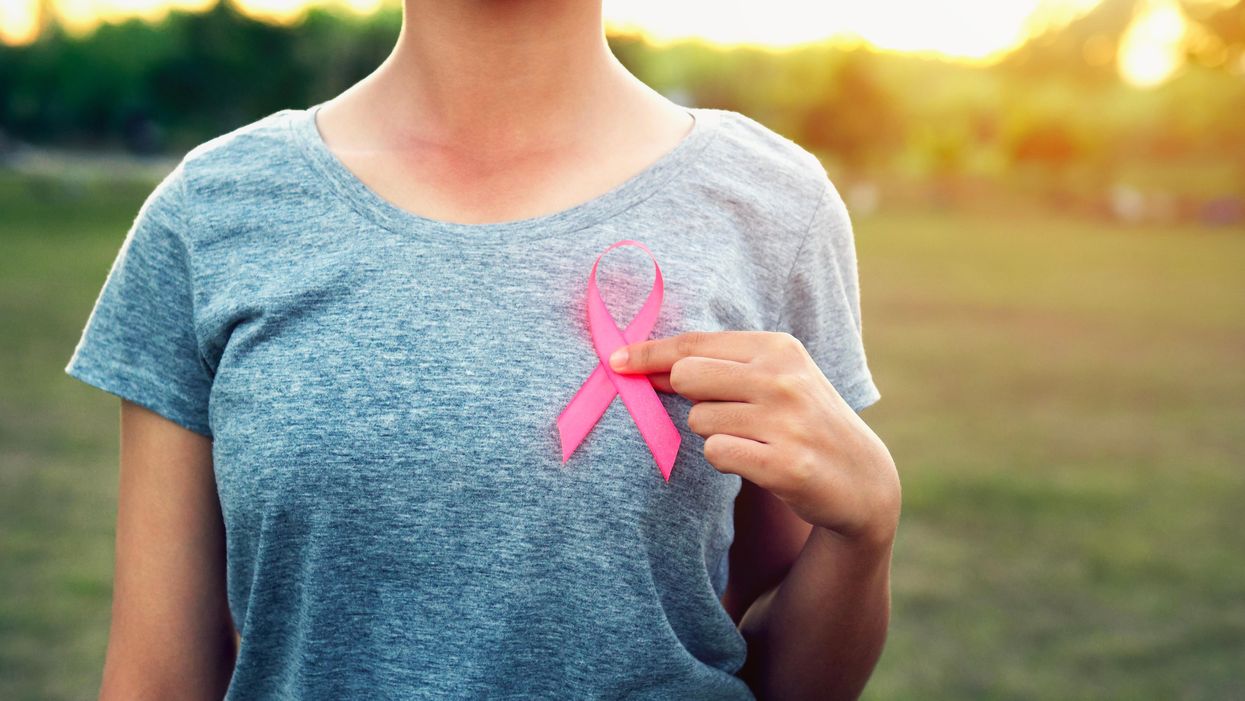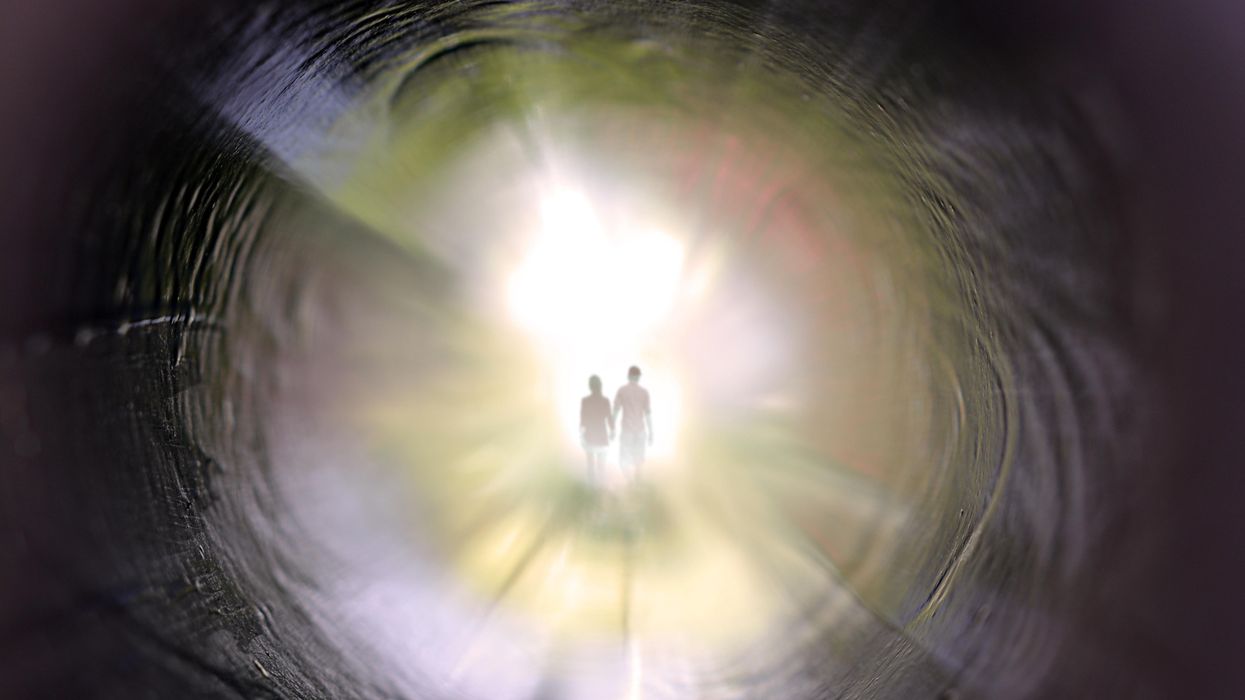Podcast: Should Scientific Controversies Be Silenced?
Kira Peikoff was the editor-in-chief of Leaps.org from 2017 to 2021. As a journalist, her work has appeared in The New York Times, Newsweek, Nautilus, Popular Mechanics, The New York Academy of Sciences, and other outlets. She is also the author of four suspense novels that explore controversial issues arising from scientific innovation: Living Proof, No Time to Die, Die Again Tomorrow, and Mother Knows Best. Peikoff holds a B.A. in Journalism from New York University and an M.S. in Bioethics from Columbia University. She lives in New Jersey with her husband and two young sons. Follow her on Twitter @KiraPeikoff.

The recent Joe Rogan/Spotify controversy prompts the consideration of tough questions about expertise, trust, gatekeepers, and dissent.
The "Making Sense of Science" podcast features interviews with leading medical and scientific experts about the latest developments and the big ethical and societal questions they raise. This monthly podcast is hosted by journalist Kira Peikoff, founding editor of the award-winning science outlet Leaps.org.
The recent Joe Rogan/Spotify backlash over the misinformation presented in his recent episode on the Covid-19 vaccines raises some difficult and important bioethical questions for society: How can people know which experts to trust? What should big tech gatekeepers do about false claims promoted on their platforms? How should the scientific establishment respond to heterodox viewpoints from experts who disagree with the consensus? When is silencing of dissent merited, and when is it problematic? Journalist Kira Peikoff asks infectious disease physician and pandemic scholar Dr. Amesh Adalja to weigh in.

Dr. Amesh Adalja, Senior Scholar, Johns Hopkins Center for Health Security and an infectious disease physician
Listen to the Episode
Kira Peikoff was the editor-in-chief of Leaps.org from 2017 to 2021. As a journalist, her work has appeared in The New York Times, Newsweek, Nautilus, Popular Mechanics, The New York Academy of Sciences, and other outlets. She is also the author of four suspense novels that explore controversial issues arising from scientific innovation: Living Proof, No Time to Die, Die Again Tomorrow, and Mother Knows Best. Peikoff holds a B.A. in Journalism from New York University and an M.S. in Bioethics from Columbia University. She lives in New Jersey with her husband and two young sons. Follow her on Twitter @KiraPeikoff.
In today's episode, Leaps.org interviews Camila dos Santos, a molecular biologist at Cold Spring Harbor Lab, about her research on breasts and what makes them unique compared to any other part of the body.
My guest today for the Making Sense of Science podcast is Camila dos Santos, associate professor at Cold Spring Harbor Lab, who is a leading researcher of the inner lives of human mammary glands, more commonly known as breasts. These organs are unlike any other because throughout life they undergo numerous changes, first in puberty, then during pregnancies and lactation periods, and finally at the end of the cycle, when babies are weaned. A complex interplay of hormones governs these processes, in some cases increasing the risk of breast cancer and sometimes lowering it. Witnessing the molecular mechanics behind these processes in humans is not possible, so instead Dos Santos studies organoids—the clumps of breast cells donated by patients who undergo breast reduction surgeries or biopsies.
Show notes:
2:52 In response to hormones that arise during puberty, the breast cells grow and become more specialized, preparing the tissue for making milk.
7:53 How do breast cells know when to produce milk? It’s all governed by chemical messaging in the body. When the baby is born, the brain will release the hormone called oxytocin, which will make the breast cells contract and release the milk.
12:40 Breast resident immune cells are including T-cells and B-cells, but because they live inside the breast tissue their functions differ from the immune cells in other parts of the body,
17:00 With organoids—dimensional clumps of cells that are cultured in a dish—it is possible to visualize and study how these cells produce milk.
21:50 Women who are pregnant later in life are more likely to require medical intervention to breastfeed. Scientists are trying to understand the fundamental reasons why it happens.
26:10 Breast cancer has many risks factors. Generic mutations play a big role. All of us have the BRCA genes, but it is the alternation in the DNA sequence of the BRCA gene that can increase the predisposition to breast cancer. Aging and menopause are the risk factors for breast cancer, and so are pregnancies.
29:22 Women that are pregnant before the age of 20 to 25, have a decreased risk of breast cancer. And the hypothesis here is that during pregnancy breast cells more specialized, as specialized cells, they have a limited lifespan. It's more likely that they die before they turn into cancer.
33:08 Organoids are giving scientists an opportunity to practice personalized medicine. Scientists can test drugs on organoids taken from a patient to identify the most efficient treatment protocol.
Links:
Camila dos Santos’s Lab Page.
Editor's note: In addition to being a regular writer for Leaps.org, Lina Zeldovich is the guest host for today's episode of the Making Sense of Science podcast.
Lina Zeldovich has written about science, medicine and technology for Popular Science, Smithsonian, National Geographic, Scientific American, Reader’s Digest, the New York Times and other major national and international publications. A Columbia J-School alumna, she has won several awards for her stories, including the ASJA Crisis Coverage Award for Covid reporting, and has been a contributing editor at Nautilus Magazine. In 2021, Zeldovich released her first book, The Other Dark Matter, published by the University of Chicago Press, about the science and business of turning waste into wealth and health. You can find her on http://linazeldovich.com/ and @linazeldovich.
Podcast: The Friday Five Weekly Roundup in Health Research
In this week's Friday Five, learn how to get the benefits of near-death experience; how to tell the difference between good and bad inflammation; how brain shocks can improve memory; how to increase your longevity even without good genes for living longer; and much more.
The Friday Five covers five stories in research that you may have missed this week. There are plenty of controversies and troubling ethical issues in science – and we get into many of them in our online magazine – but this news roundup focuses on scientific creativity and progress to give you a therapeutic dose of inspiration headed into the weekend.
Here are the promising studies covered in this week's Friday Five:
- Not a fan of breathing in micro plastics? New robot noses could help
- You don't need a near-death experience to get the benefits
- How to tell the difference between good and bad inflammation
- Brain shocks for better memory - don't try this at home (yet)!
- A new way to know if your bum back is getting better
The honorable mention for this week's Friday Five: One activity can increase your longevity even without good genes for living longer.

